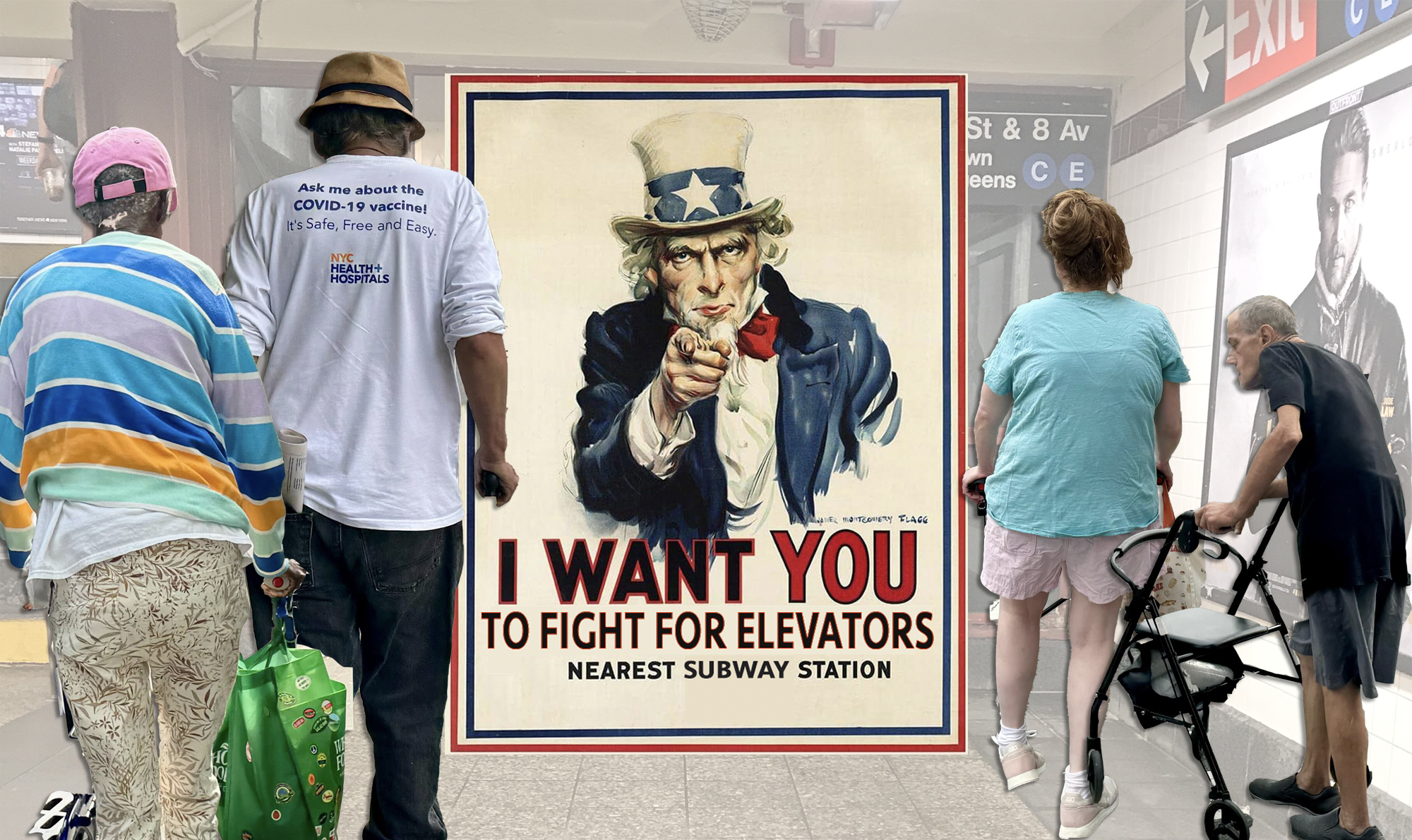Accessibility advocates will gather by the hundreds to remind straphangers why their subway station has no elevator: MTA under-funding and Gov. Hochul's decision to cancel congestion pricing.
Transit advocates will gather for a Citywide Subway Canvassing Day on Sunday, Sept. 8 and fan out across the city to talk to subway riders about how the impact of Hochul's decision on the MTA's plan install elevators at almost two dozen subway stations.
The goal is to show New Yorkers what they're losing from the "indefinite pause" of congestion pricing, organizers said.
"Congestion pricing can be something that divides people one way or another, and they may not be fully aware or educated on the need for congestion pricing and how that money will be used," said Jeff Peters, the director of communications for the Center of the Independence of the Disabled NY.
"Hopefully we can change change minds, and people can see that congestion pricing would be used for just this situation."
Groups participating in the canvassing day include the Center for the Independence of the Disabled NY, Elevator Action Group, the Permanent Citizens Advisory Committee to the MTA, New York City Democratic Socialists of America, Open Plans, Riders Alliance, Transportation Alternatives and UP-STAND.
The groups plan to hit the streets and all 23 subway stations where the MTA canceled planned accessibility improvements after Gov. Hochul's hijinks.
Without the money from congestion pricing, the MTA faces a $15-billion shortfall for its 2020-2024 capital plan. When Hochul failed to convince the state legislature to replace that revenue before it wrapped up its annual session in June, the MTA had to defer billions of dollars in capital upgrades — including $2 billion in elevator projects for the 23 stations.
The deferred accessibility projects on the subway aren't just "nice to have," Peters said — subway accessibility is a matter of human rights, as well as a binding legal commitment: Per a settlement the MTA reached with advocates last year, the agency must make 95 percent of the subway accessible by 2055 and set aside 15 percent of any capital plan for accessibility.
Organizers are asking people of any experience to come out for the day so they can talk to their fellow New Yorkers about how congestion pricing and accessibility upgrades fit with each other.
"First-time canvassing volunteers can expect to have real conversations with their neighbors at the subway station regarding concerns about public transit and the need for elevators and accessibility," said Riders Alliance Senior Organizer Danna Dennis. "It should be lots of fun, and a great opportunity to raise awareness about why funds for congestion pricing are so important to local communities."
Advocates hope to use the canvass day to humanize the issue. Peter cited the Hoyt-Schermerhorn station in Brooklyn as an example.
"[Hoyt-Schermerhorn] has a long, a long walkway, so I'll walk with somebody and say, 'Imagine walking up these stairs?' or, 'Imagine you couldn't walk up these stairs. What happens? You've got to go to go to another station,'" he explained. "That's one of the goals to show people and tell people one on one, 'This is what this station is, this is what it could be like and this is what it has to be like.'"
Hochul's shortsighted maneuver could also eat into funding for the upcoming — and as-yet-unfunded — capital plan. As Elevator Action Group's Jessica Murray laid out in June, the MTA's legal agreement allows the agency to shrink the share of money directed to elevator projects if the capital plan itself shrinks.
I don't believe for a second that they'll do anything "in good faith." 8/8
— Jessica Murray (@jekaanne) June 10, 2024
"We could be looking at at least a 30-[percent] reduction in ADA spending without congestion pricing," Murray posted. "Given how the [MTA] has refused to work with advocates on maintenance issues and improving accommodations for out of service elevators by drawing out a lawsuit more than [seven] years, I don't believe for a second that they'll do anything 'in good faith.'"
Sign up here for the Sept. 8 canvassing day.






